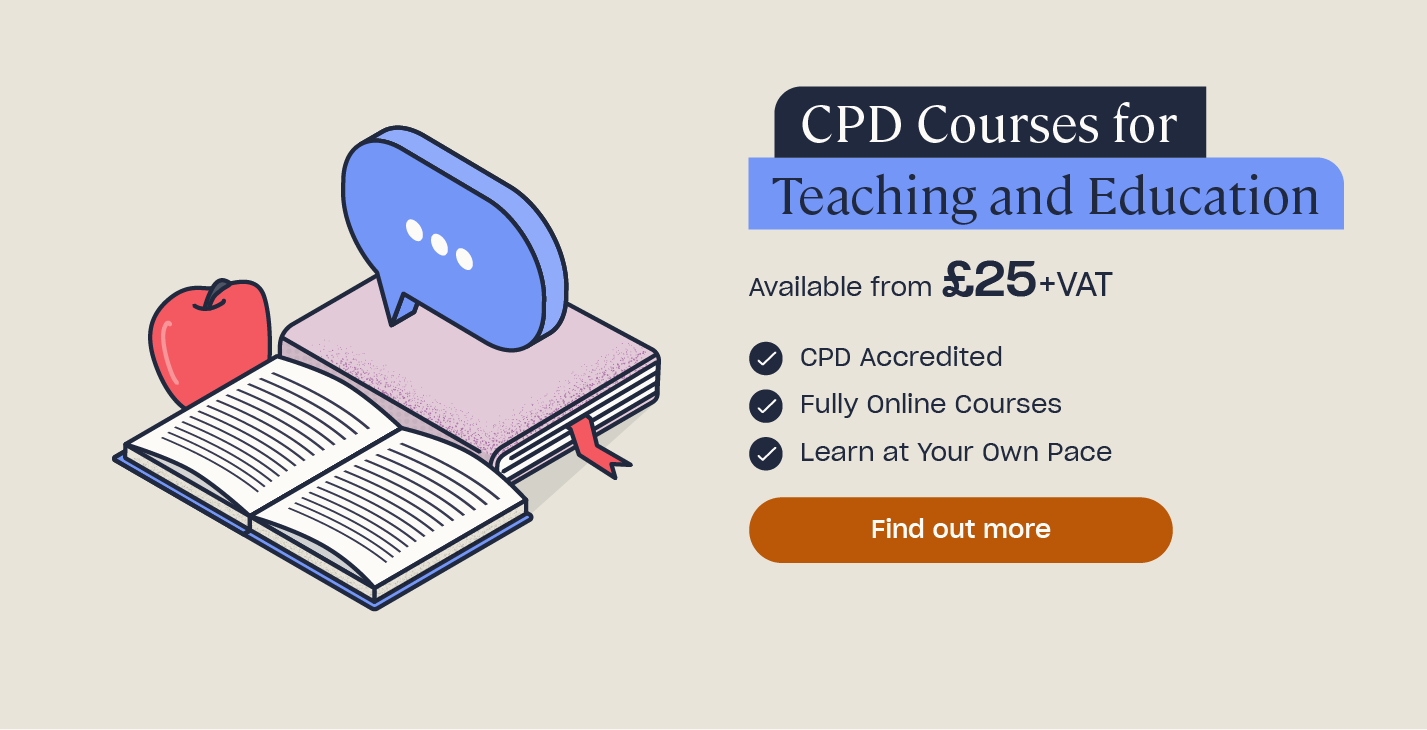Effective Classroom Management: Tips for Teachers
Effective classroom management is a vital skill for any teacher, but it’s also an area where there will always be more to learn. This is because every class is different and presents distinct challenges. Being able to manage any classroom you’re placed in is a key component of ensuring success in your field.
In this article, we will outline what classroom management is, explore why it is so important, and equip you with a number of classroom management strategies and tips to help you feel inspired and improve your practice.
What is Classroom Management?
Classroom management encompasses a range of techniques and skills that are used to create an effective learning environment where classes run smoothly, disruptive behaviour is kept to a minimum, and the academic material is conducive to learning. At its core, effective classroom management is when a teacher creates a clear set of expectations for their learning environment that students must adhere to.

The specific strategies you use for classroom management may look different depending on factors such as the age of your students, their behavioural tendencies, and class size. No matter which techniques you choose however, good classroom management should always aim to:
- Establish an organised and functional learning environment.
- Create opportunities for progressive learning and academic success.
- Reduce bad or disruptive behaviour.
- Be efficient with teaching time.
- Form motivated, focused, and productive students.
- Promote an inclusive learning environment which caters to all abilities.
Classroom management is not something you learn and implement once. Rather, it’s an ongoing process that will need to be improved and adapted over time to suit individual classes and students.
Why is Classroom Management Important?
Classroom management is so crucial because it lies at the centre of your ability to teach and your student’s ability to learn. Having a good classroom management plan will not only make you a more effective teacher, but it will also help to make your role more enjoyable too.
Below are some of the top benefits of mastering effective classroom management that will have a positive impact on both you and your students:
Reduces Behavioural Disturbances
Classroom management is largely about setting expectations for your pupils so that they know what is or isn’t deemed acceptable. Having strong behavioural boundaries in place can help to avoid major disturbances in your classroom, and also address low-level behavioural issues before they escalate. Poor behaviour and disturbances can have a large impact on all student’s ability to learn, so it’s important that you’re able to keep these distractions at bay.
You can explore our recommended strategies to help reduce behavioural disturbances in our ABC Chart for Challenging Behaviour: Free Template resource.
Creates a Positive Learning Environment
A positive learning environment is one where children feel physically, socially, and emotionally safe, encouraged, valued, and supported. Effective classroom management helps to create a positive learning environment by ensuring consistency and structure in your classroom so that students always know what to expect, and what is expected in return, which will provide comfort and motivation.

To learn more about this subject, read our full article on How to Create a Positive Learning Environment.
Establishes a Learning Culture
Effective classroom management helps students stay focused in your lessons so that they’re able to fully engage in the academic content. Also, if you’re spending less time trying to handle disruptions and keep students on task, this frees up more of your time to provide individualised attention to those that require more guidance, helping them to take more from the learning material.
Reduces Work-Related Stress and Anxiety
Just as having a well managed classroom helps students to know what to expect, thus creating a more positive experience for them, the same is true of teachers too. Being able to create a well organised and stable classroom environment through your management of it ensures that there are minimal, if any, unwanted surprises which could cause stress or anxiety.
Invites Diversity and Inclusion
Every student is different, and good classroom management will be considerate of this and use it to enhance the learning environment. Being able to understand and cater to student’s differences will create a more well balanced and inclusive classroom where each pupil feels equally supported and able to express their individuality rather than trying to adhere to the norm.
Looking to Learn More?
Our comprehensive range of CPD Courses for Teaching and Education cover all key areas of development and compliance in education to help you build on your existing knowledge or learn new skills to aid you in the classroom. For example, our Challenging Behaviour and Leadership and Management courses could help progress your classroom management.
Classroom Management Strategies
Although classroom management may differ depending on class size, student age, their behavioural tendencies, or the subject you teach, for example, there are certain techniques that apply to almost all cases and thus should be implemented in any classroom.
Here are our tips for teachers that should help you to build a strong core to your classroom management:
Have a Solid Lesson Plan
Creating strong lesson plans is the foundation of effective classroom management. Although these may occasionally need to be adapted due to unforeseen circumstances, being prepared for your lessons well in advance helps to ensure you and your students know what to expect from the upcoming curriculum which avoids any stress, anxiety, or confusion.

Furthermore, planning your lessons in detail allows you to consider the characteristics of your class and its individual students when preparing learning material to ensure your content caters to everyone’s needs and strengths.
Build Strong Student/Teacher Relationships
Without really knowing and understanding each of your students, you can’t cater your lessons to their strengths, weaknesses, interests, or ambitions. Thus, it’s essential you take the time to build a relationship with each pupil. In doing this, you will also gain your student’s trust and respect which will create a more positive learning environment overall and help make behavioural management easier.
Encouraging pupil voice is essential to building these strong relationships, as your students should feel confident enough to express their personality traits and opinions and feel that these are actively noted and listened to by you.
To learn more about this, read our article on 5 Ways to Maximise Pupil Voice.
Show Consistency in Your Teaching
Whilst adaptability and flexibility in the classroom are important, you should generally try to stick to one clear way of doing things and handling situations so that your students know where they stand. In being consistent with your approach, your pupils will know what to expect and be aware of boundaries, making behaviour management much easier and minimising disruptions.
Be Reflective About Your Practice
As mentioned, classroom management is an ongoing process which you should aim to refine over time. Reflective practice, the process of continually improving your teaching by repeatedly reflecting on your methods, is key to this. Read our guide to What’s the Importance of Reflective Practice in Teaching to discover more.

As part of your reflective practice, schedule time to consider your current classroom management, identify what works well and what could be improved, and try new strategies to try to build on your present skills. You could include classroom management as part of your Personal Development Plan to ensure you’re taking actionable steps to improve it.
Consider using our Professional Development Plan for Teachers Free Template to get started.
Model the Behaviour You Wish to See
One of the best ways to manage your class is to demonstrate the behaviour you wish to see from them. Children learn most effectively by example, so it’s vital to always ensure you’re exhibiting the same standards that you expect from your students, such as speaking politely, not interrupting, and being respectful.
Additionally, modelling a calm and focused attitude will help to discourage unruly and frenzied behaviour from your students as they will naturally match your level of composure. Furthermore, disruptive students often thrive on getting a rise from teachers so demonstrating that you can’t be easily rattled will help to deter any challenging behaviour.
Classroom management is the core of building and maintaining a positive, effective learning environment, and thus it should be prioritised by all teachers. As each class and student you teach will be different, your classroom management will need refining and adapting over time, so you should continually be reflecting on your methods and aiming to improve them. In doing all this, both you and your students will soon reap the extensive benefits of effective classroom management.
Further Resources:
- What’s the Importance of Reflective Practice in Teaching?
- Effective Communication in the Classroom: Skills for Teachers
- Professional Development Plan for Teachers Free Template
- 5 Ways to Maximise Pupil Voice
- ABC Chart for Challenging Behaviour: Free Template
- How to Teach with Confidence











